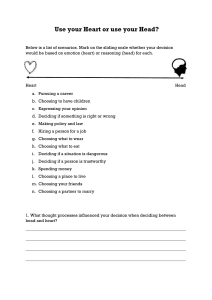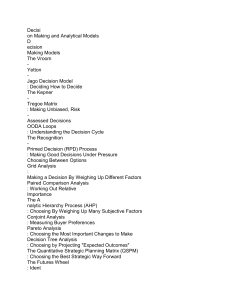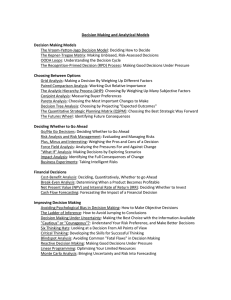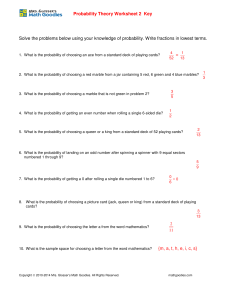Chapter 4 Practical Issues in Planning Your Research
advertisement
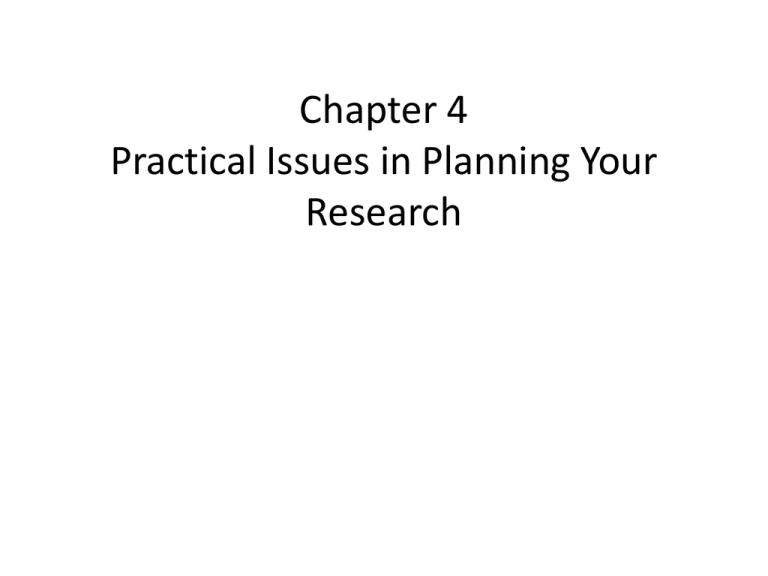
Chapter 4 Practical Issues in Planning Your Research Practical Questions in Planning Research • Simplifying complex questions to generate a manageable research question • Deciding the nature of the variables you want to investigate Understanding Your Research • Finding published research relating to your research question through a literature search • Deciding how you will measure your variables • Understanding the nature of the participants to be tested in the research Conducting Your Study • Deciding on the type of research – Descriptive – Survey – Correlational – Experimental • Evaluating ethical issues of your research • Determining the Research Setting – Laboratory (often theoretical) – Natural environment (often applied) Choosing Your Methodology Research Methodologies Observational Research—Recording naturally occurring behavior without intervention or manipulation of variables Correlational Research—Identifying whether different behaviors, thoughts, and attitudes change together in predictable ways Experimental Research—Manipulating the research setting to identify causes of behavior Quasi- experimental research—Comparing existing groups to see if they differ Survey research—Asking respondents to answer questions on questionnaires, inventories, and tests Case study research—In-depth research of a single individual or a few people without any manipulation of the environment Longitudinal research—Monitoring behavior of a group over an extended period Archival research—Using existing information (e.g., documents, newspaper reports, etc.) to address behavioral issues Qualitative research—Studying people in their natural environment descriptively (without numerical analyses) and holistically Choosing Your Methodology • Selecting Research Materials and Procedures – To what materials will you expose your participants? – What materials have other researchers used? • Finding materials and methods other researchers have used will save time in planning a new project • It is appropriate to use others’ materials as long as you cite them properly and attribute their work to them Choosing Your Methodology Why Methodology is Important Different materials can lead to different outcomes Awareness of the effect of your materials is critical Different types of participants can generate different results Choosing Participants or Subjects • Identifying possible participants – Population—The entire set of people or data that are of interest to the researcher – Sample—A subset of the population that actually takes part in the research – Representative sample—A subset of the population that resembles the entire population so that results from that sample can be applied to the entire population Choosing Participants or Subjects • Deciding how many participants to include – Too large a sample is costly – Too small a sample can miss important results • Issues – With highly variable behavior, you need larger samples – With heterogeneous populations, you need larger samples – With small experimental effects, you need larger samples Controversy: Comparing Animal and Human Stress • Can you generalize from animals to people? – Researchers have used experimental stress to induce learned helplessness in animals – Animals who are stressed may not show typical patterns of conditioning • People who experience similar stress show similar patterns of behavior as animals • Sometimes animal behavior is a good predictor of human behavior – Researchers need to be aware of the limitations in their ability to generalize from animals to people Differing Approaches in Different Areas of Psychology • Different approaches in different journals • Theoretical research journals – Report laboratory research much of the time – Rely on experimental approaches – Feature college students as participants • Applied research journals often report – Report on laboratory research much of the time – Rely on non-experimental approaches – Feature people in the working world as participants Differing Approaches in Different Areas of Psychology Making choices in your research design • Choices are based on practicalities – How limited is your time, energy, and money? – Can you manipulate an environment (laboratory or applied) to your desire? – How simple a research setting make sense for your research
